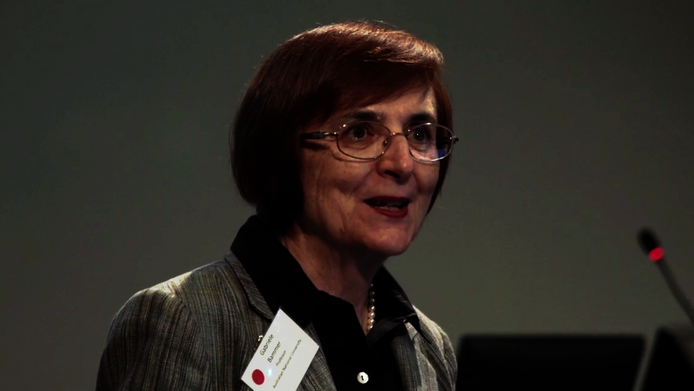Tackling real-world problems
FWF: You have been active in transdisciplinary research for a long time now. What sets this approach apart from traditional academic research is that it involves players outside the academic system, seeking to benefit from their skills and knowledge. Where does this development stand today?
Gabriele Bammer: There’s a growing appreciation that tackling together both the scientific and the societal aspects of a problem allows it to be understood more comprehensively and opens new possibilities for effective action. There’s ever-expanding recognition of this kind of research world-wide. One indicator is continuing growth in publications about transdisciplinary projects, methods, processes and so on. Another is the increasing number of attendees at transdisciplinary conferences.
FWF: What is at the core of transdisciplinary research?
Bammer: The core of transdisciplinary research is both an orientation and a set of methods. There are some key aspects and approaches: First of all, it is important to understand that problems are systems and therefore inter-relationships as well as more straightforward causes should be examined. Next, relevant stakeholders have to be brought into the research – both those who are affected by the problem and those who are in a position to do something about the problem. Ideally what you are aiming for is co-production, where the stakeholders are involved as partners in designing the research and implementing the findings and, sometimes even undertaking the research.
Transdisciplinary research benefits from diversity across a whole range of dimensions, including knowledge, epistemologies, interests, personalities, cultures, and life experiences. Integrating across this diversity, for example through dialogue or modelling, is key. Further, such projects are action-oriented, so that it’s not just about understanding the problem better, but also supporting improvement. Against this background it is critical to be aware of the context of the problem, for example an environmental or health problem in one region can play out quite differently from the same problem in another region. And finally a broader appreciation of what we don’t know and an ability to accept some unknowns rather than ignoring them helps.
FWF: How are transdisciplinary projects ideally carried out, and in which time frame?
Bammer: It’s not possible to predict how any research that is addressing a worthwhile problem will proceed or how long it will take – and that includes transdisciplinary research. It’s also difficult to shoe-horn transdisciplinary research into a conventional funding system. The characteristics of transdisciplinary research I described earlier explain this. For example, developing close, active engagement with a range of stakeholders to establish trust is time-consuming and requires support, both in the initial stages and to maintain over the long-term. Another example is that transdisciplinary research does not finish with the publication of papers in peer-reviewed journals; instead researchers have a role in supporting action for improvement and in evaluating it, which also require on-going funding.
FWF: What motivates researchers to engage in transdisciplinary work?
Bammer: There’s an interesting paper that was published recently that explored this question with Swiss researchers. Essentially it’s recognising the value added to the research that including stakeholders brings. Interestingly people want to do transdisciplinary research even though they recognise that it may slow down or harm their career progression. That doesn’t mean they are happy about those disadvantages and they would certainly like to see them disappear.






